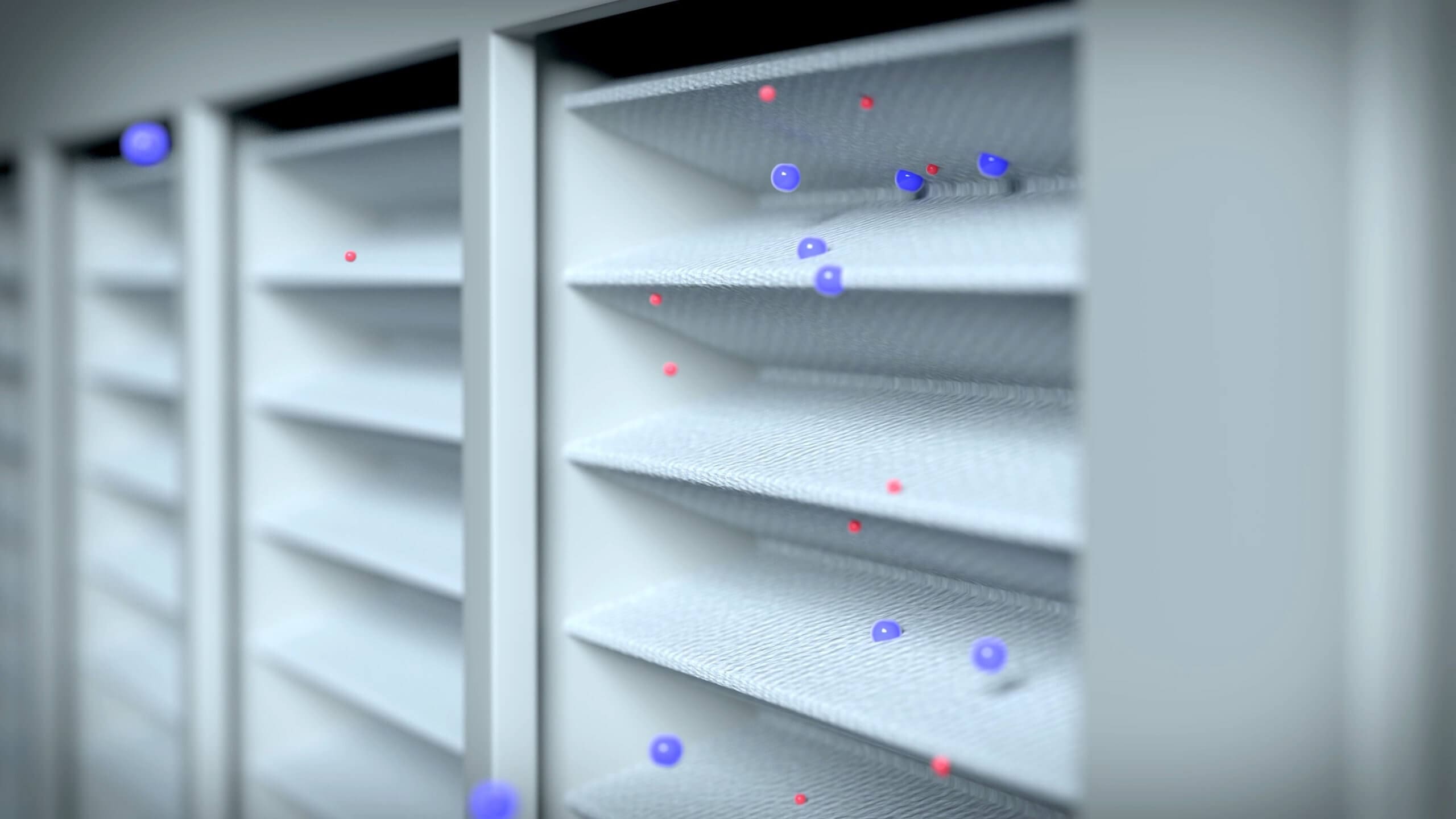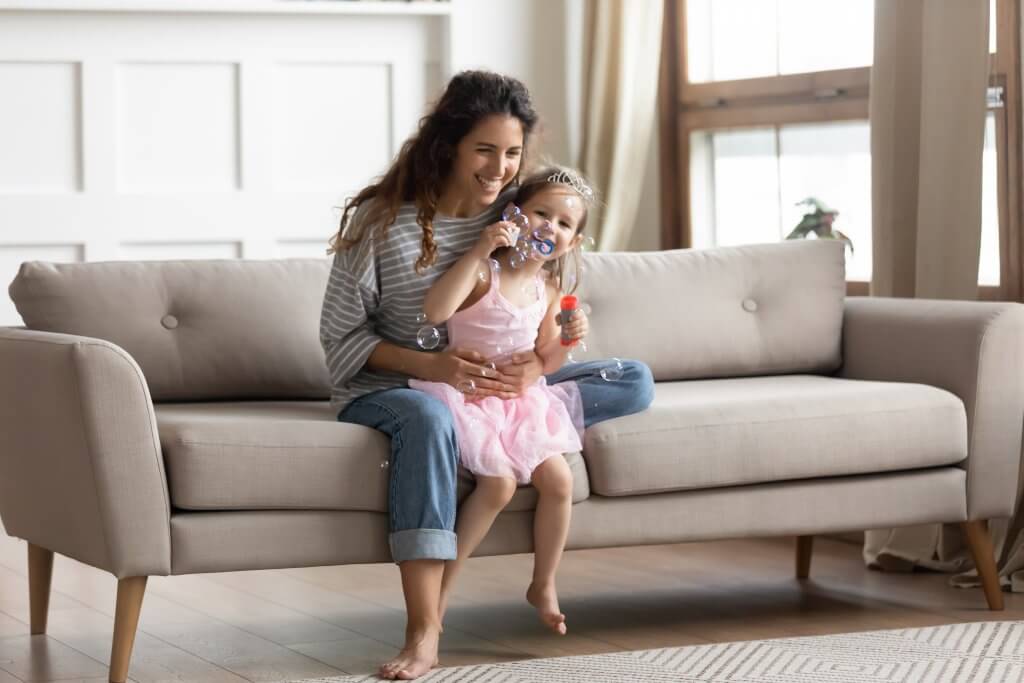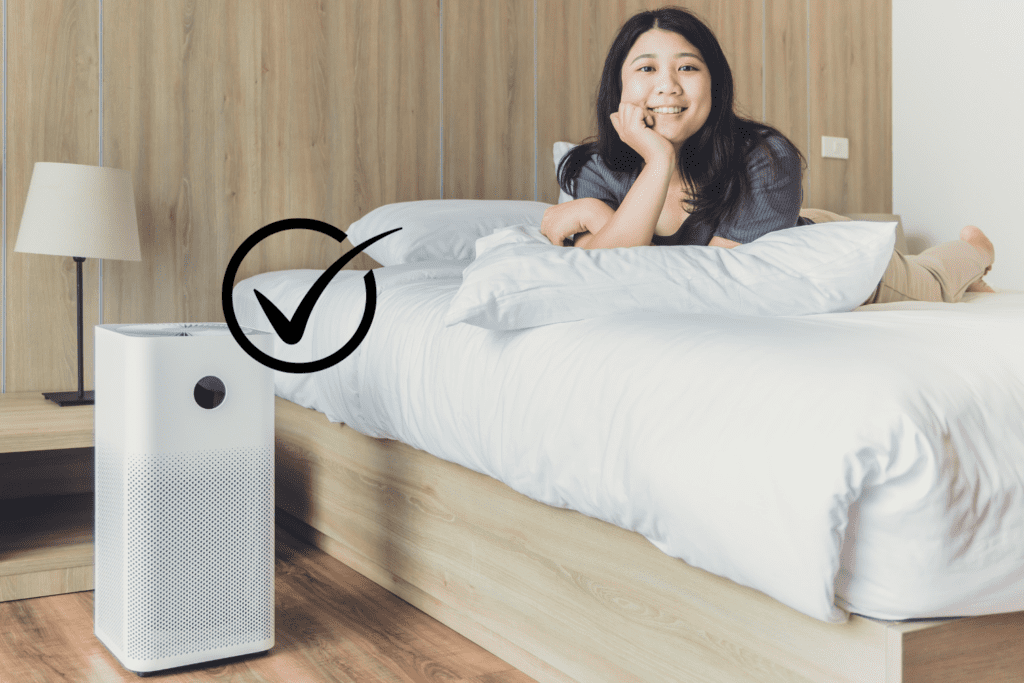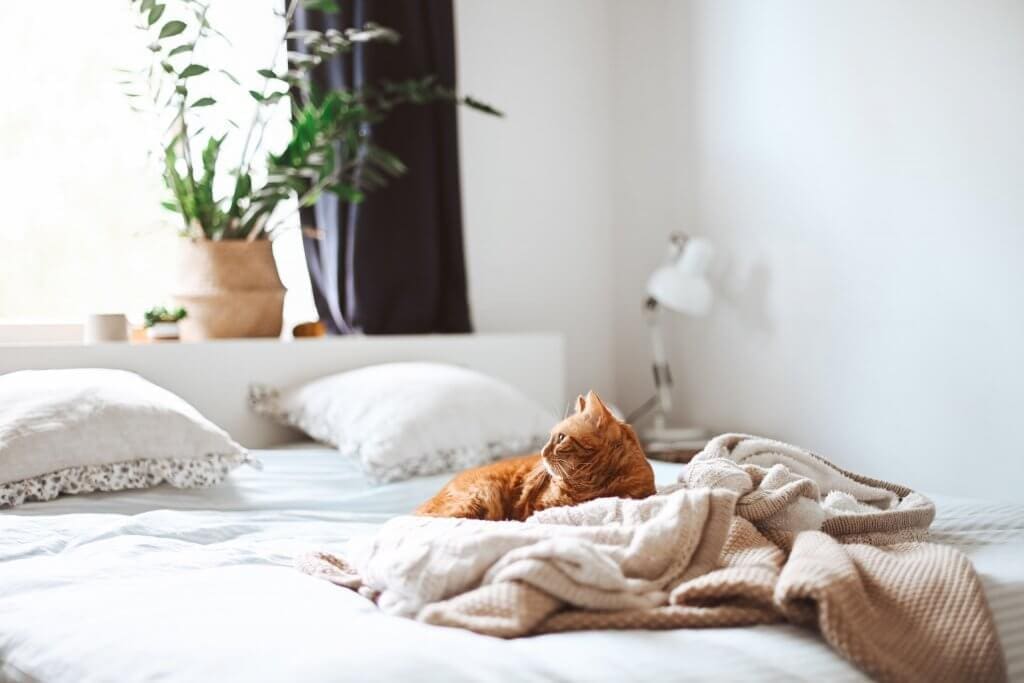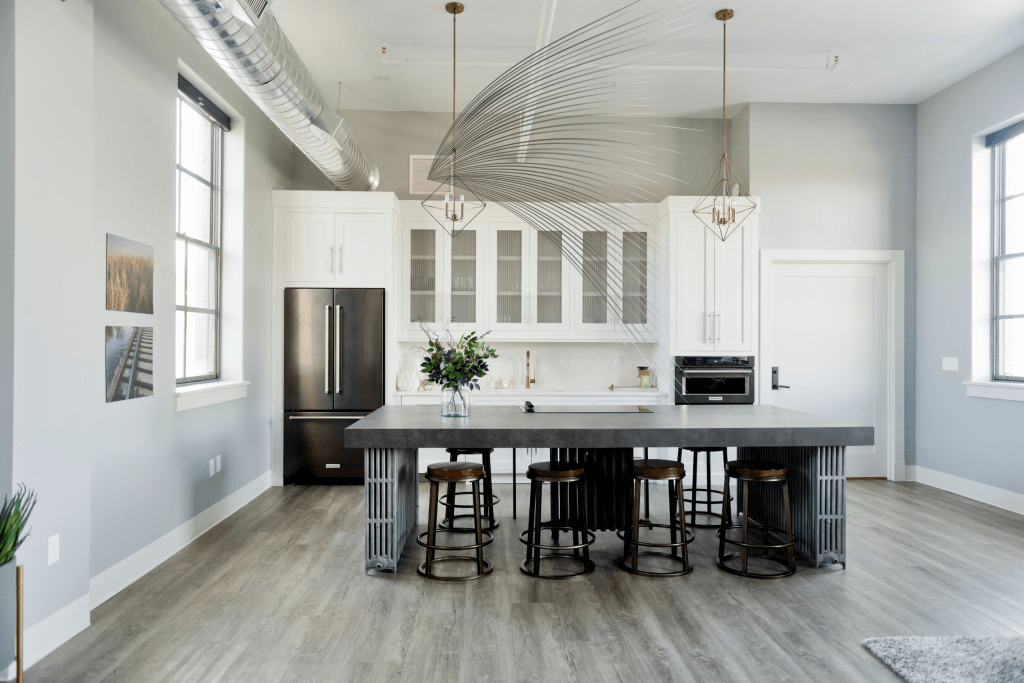Generally speaking, the terms clean and purify are used interchangeably. With regard to air cleaners and air purifiers, however, it is important to note the difference between the two words. The technologies perform similar tasks with similar results, but one solution may be more suitable for your indoor air quality needs.
Air Cleaning Solutions
The main difficulty with the term air cleaners is that it’s evolved to refer to two entirely different IAQ control solutions. Even though the two processes have the same goal—to remove pollutants from the indoor air! One might say that air cleaners and air purifiers are the same thing, and someone else could argue they are entirely different control strategies. The bulk of this confusion stems from different applications of the term for both filtration and purification solutions.
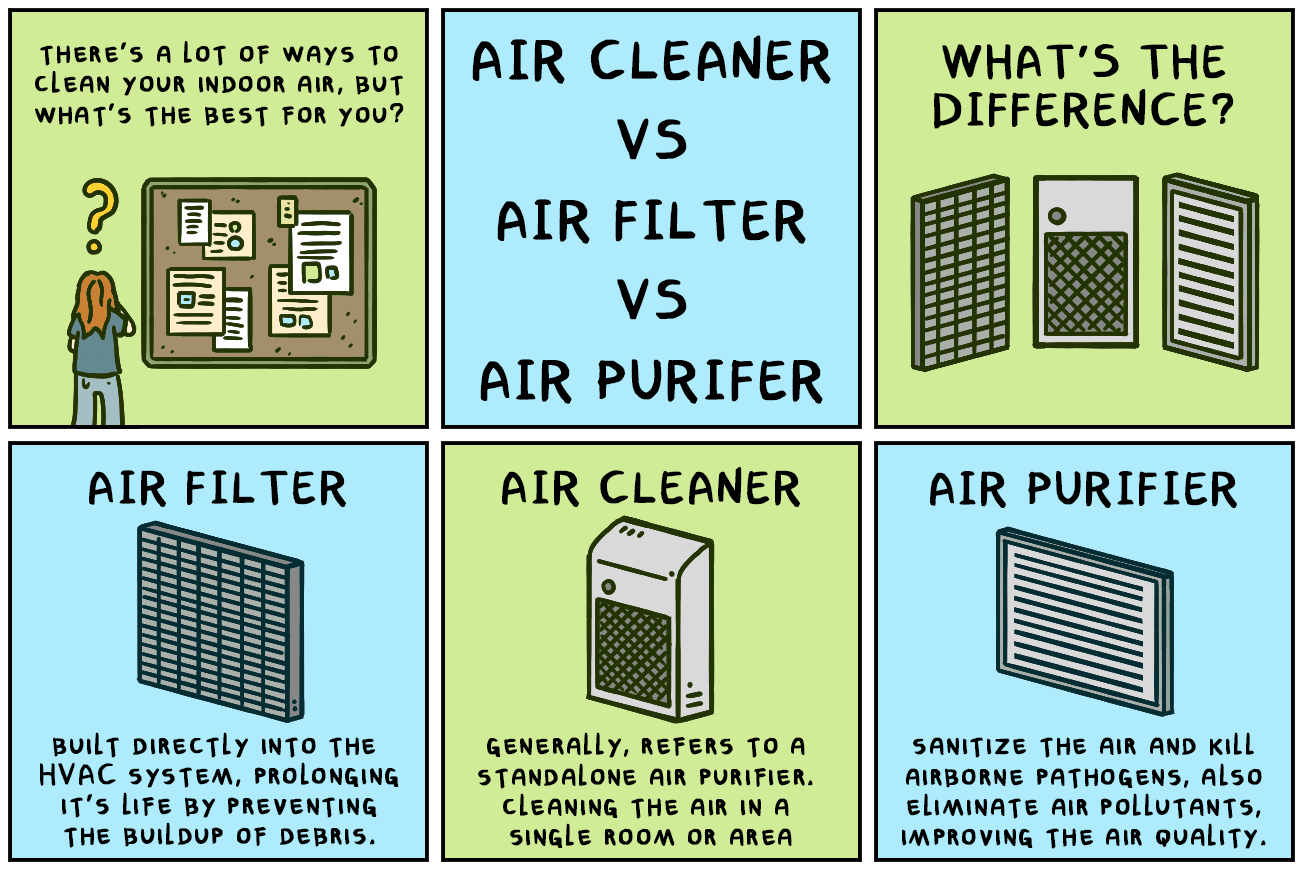
Air Filters
Some might use the term air cleaner to refer to HVAC system air filters. After all, filters are designed to capture and remove air pollutants, resulting in cleaner air. Regardless, these are HVAC system requirements. HVAC air filters live in your home’s HVAC system. There are several types of air filters:
- Fiberglass filters are common and disposable. While they protect the HVAC system, they do little for indoor air quality.
- Washable filters are reusable and cost-effective, making them an environmentally and pocket-friendly choice. However, these filters require routine upkeep.
- High Efficiency Particulate Air, or HEPA filters are incredibly effective at trapping particles. Even so, they are not the best whole home filter option as they drastically reduce airflow.
- Activated carbon filters are often used to reduce odors and gaseous chemicals.
- Media filters offer the best happy medium, particularly those with a pleated design and high MERV rating. High-efficiency media filters offer improved filtration without static pressure concerns or reduced airflow. Our go-to air filter recommendation for residential use is a MERV 13 filter.
| Pros | Cons |
|---|---|
| A good air filter effectively reduces indoor pollutants and allergens such as dust, dander and pollen. | Dirty filters and filters that restrict airflow can cause significant system disruption. |
| By protecting the HVAC system from debris and contaminants, thus prolonging the life of your unit, filters save you costly system repairs. | Replacement filters can be expensive to purchase regularly. |
| Higher-efficiency air filters improve overall indoor air quality. |
Keep in mind that opting for a higher-rated media filter solves both cons! And, to emphasize, filters are an HVAC system necessity.
 Home Air Filter: Simple questions to help you find the best home air filter for your space. Solve any confusion by following the decision tree found here →
Home Air Filter: Simple questions to help you find the best home air filter for your space. Solve any confusion by following the decision tree found here →Air Purifiers
Air purifiers are designed to sanitize the air and kill airborne pathogens (e.g. viruses and bacteria that cause illness). They also target and eliminate indoor air pollutants, improving indoor air quality.
There are several types of air purifiers that utilize different technologies to improve and maintain indoor air. Ionizing air purifiers use negative ions to create charged particles that bind with other particles. As a result, particles are larger and heavier, thus they fall from the air onto nearby surfaces and are more easily captured in system air filters.
Ultraviolet air purifiers render viruses and bacteria inactive by damaging their DNA. These air purifiers can be freestanding devices or installed directly into your HVAC system.
Some purifiers produce ozone, which can be detrimental to the health of humans and animals. We do not recommend ozone air purifiers, which can seriously impact health.
| Pros | Cons |
|---|---|
| Purification reduces many types of indoor air pollutants. | Standalone air purifiers require precise room air circulation in order to purify large areas. |
| Most air purifiers operate silently, causing little to no disruption. | Some air purifiers emit ozone which can cause significant bodily harm when inhaled in large quantities. |
Air Cleaners (Part Two)
So, air cleaning can refer to both filtration and purification, but air purifiers only mean purification, right? Yes … except, here’s where the terms really get tricky. ‘Air cleaner’ is also used specifically for portable air purifiers. Annoying, we know.
 Air Purification: Four examples when a whole-home air purifier is the ideal choice and # solutions when its smarter to opt for a portable device. Read more →
Air Purification: Four examples when a whole-home air purifier is the ideal choice and # solutions when its smarter to opt for a portable device. Read more →Generally, the term air cleaner most often refers to a standalone or single-unit air purifier. Their purpose is to clean the air in a single room. Standalone air cleaners utilize air purification technology, but also have an in-system air filter. See why the terms get confusing?
Which Should You Choose?
Understanding the differences and similarities between air filters, air cleaners and air purifiers is necessary for homeowners and any consumer buying for an indoor space.
In Sum …
- Air cleaner and air purifier can be used interchangeably in regard to purification. Purification technology may use the term air cleaner, air purifier or air sanitizer. Whole-home purification systems usually only use the term air purifier.
- Air filters are technically air-cleaning, and some even apply the term purifying to the filtration process, but air filters do not include purification technology. An air filter is essential to the HVAC system’s operations and placed somewhere in the return duct, while an air purifier is a separate add-on device.
But which one will actually benefit your space the most? If you’re looking to remove most air pollutants and despise standalone devices, then you should upgrade to a high-efficiency air filter and consider installing a whole-home purification system. If you’re looking to target air pollutants in one specific area, then you may want to choose a standalone air purifier device. When possible, it’s always helpful to choose a whole-home solution to achieve the best indoor air quality.
